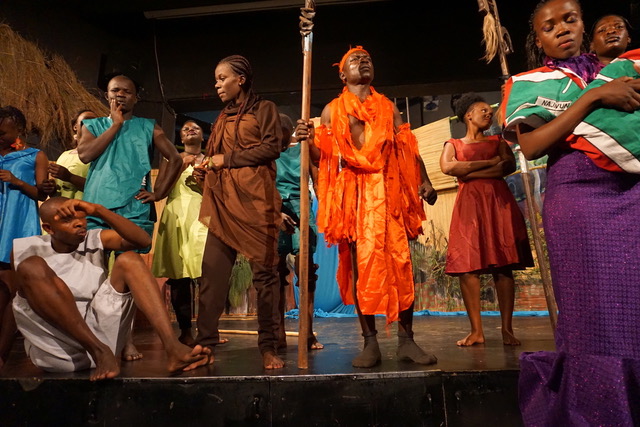Recasting the Role of the Arts in African Academia: An Introduction
 By TOM ASHER, Program Director for Next Generation Social Sciences in Africa
By TOM ASHER, Program Director for Next Generation Social Sciences in Africa
Though the nature of data varies greatly, methodology in social science remains rather constant. Scholars run regressions, track trends in legislation, and categorize chapters in history. But for some social science researchers based on the African continent, curtain calls, stages, and scripts have proven more useful than journal articles in cognizing their social world.
According to Oskar Eustis, the artistic director of New York’s Public Theater, “Theater is the essential art form of democracy.” In his Ted Talk earlier this year, he continued: “That’s the basic thesis of democracy—that the conflict of different points of view leads to the truth.”
As demonstrated by Next Generation Social Sciences in Africa fellows and alumni, theater can reveal truths beyond those regarding the essence of democracy. The art form can provide insight on violent conflict in the petroleum-rich Niger Delta, it can reveal forms of remembrance of the 1904 Namibian Genocide, and even be used as a tool to vernacularize human rights ideals into local African contexts.
In this series, we feature two Next Gen fellows who have done exactly that. Over the next week, we will highlight the research of Henry Obi Ajumeze and Pedzisai Maedza, two scholars who have, in their respective studies, helped to recast the role of the arts in African academia.

